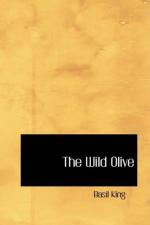With her own fingers she clasped his upon it, drawing back and coloring at her boldness. For the first time in their weeks of intercourse she saw in him a touch of emotion The phlegmatism by which he had hitherto concealed his inward suffering seemed suddenly to desert him. He looked at her with lips quivering, while his eyes filled. His weakness only nerved her to be stronger, sending her for refuge back into the commonplace.
“They’ll expect you at Rimouski, because your luggage will already have gone on board at Montreal. Yes,” she continued, in reply to his astonishment, “I’ve forwarded all the trunks and boxes that came to me from my father. I told my guardian I was sending them to be stored—and I am, for you’ll store them for me in London when you’ve done with them. Here are the keys.”
He made no attempt to refuse them, and she hurried on.
“I sent the trunks for two reasons; first, because there might be things in them you could use till you get something better; and then I wanted to prevent suspicion arising from your sailing without luggage. Every little thing of that sort counts. The trunks have ‘H.S.’ painted in white letters on them; so that you’ll have no difficulty in knowing them at sight. I’ve put a name with the same initials on the ticket. You’d better use it till you feel it safe to take your own again.”
“What name?” he asked, with eager curiosity, beginning to take the ticket out of its envelope.
“Never mind now,” she said, quickly. “It’s just a name—any name. You can look at it afterward. We’d better go on.”
She made as though she would move, but he detained her.
“Wait a minute. So your name begins with S!”
“Like a good many others,” she smiled.
“Then tell me what it is. Don’t let me go away without knowing it. You can’t think what it means to me.”
“I should think you’d see what it means to me.”
“I don’t. What harm can it do you?”
“If you don’t see, I’m afraid I can’t explain. To be nameless is—– how shall I say it?—a sort of protection to me. In helping you, and taking care of you, I’ve done what almost any really nice girl would have shrunk from. There are plenty of people who would say is was wrong. And in a way—a way I could never make you understand, unless you understand already—it’s a relief to me that you don’t know who I am. And even that isn’t everything.”
“Well—what else?”
“When this little episode is over”—her voice trembled, and it was not without some blinking of the eyes that she was able to begin again—“when this little episode is over, it will be better for us both—for you as well as for me—to know as little about it as possible. The danger isn’t past by any means; but it’s a kind of danger in which ignorance can be made to look a good deal like innocence. I shan’t know anything about you after you’ve gone, and you know nothing whatever about me.”




